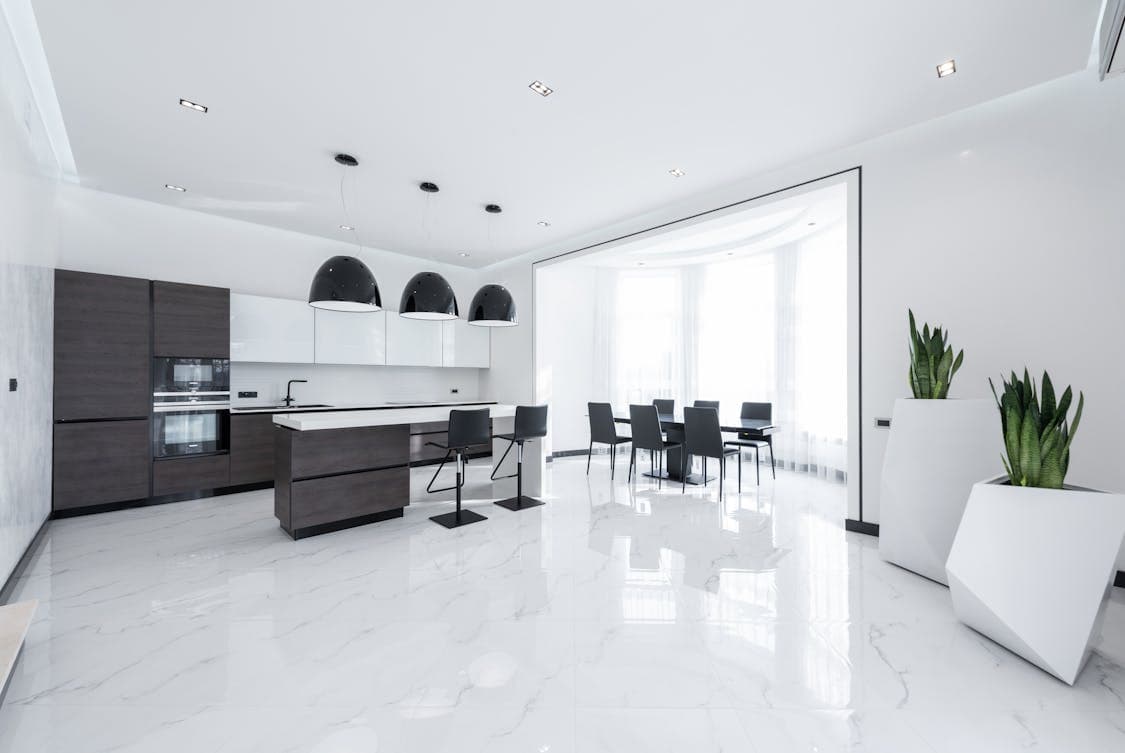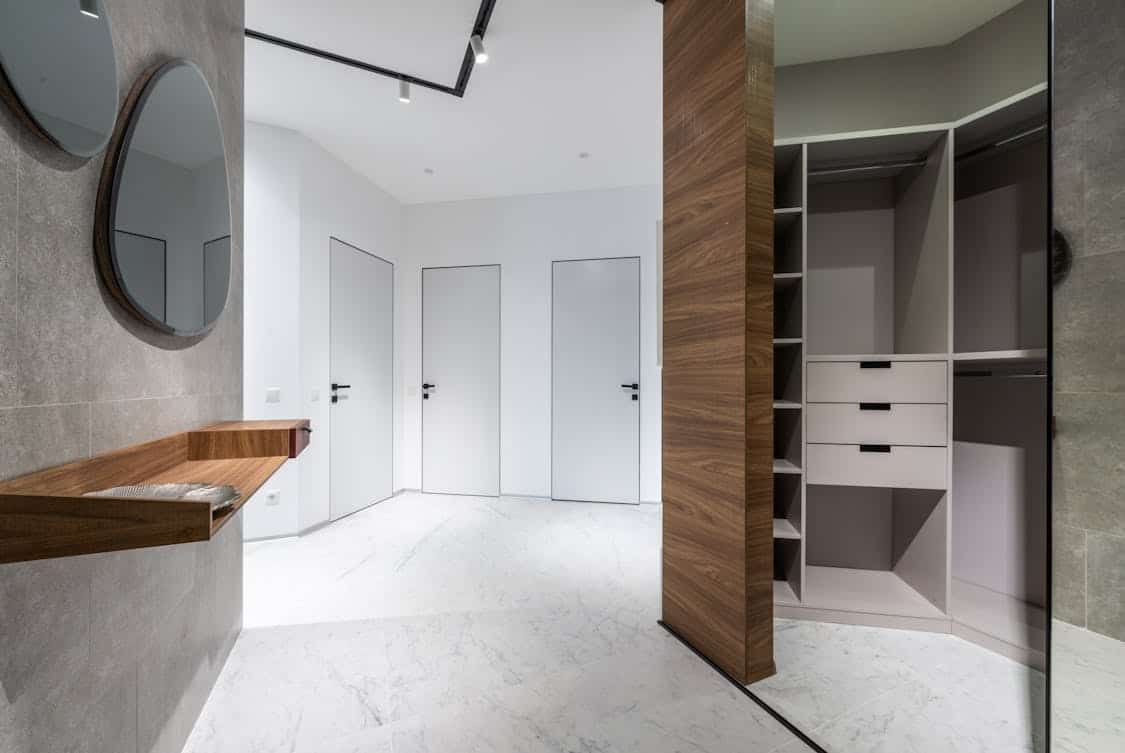When it comes to home improvement, homeowners often seek projects that add value. One option that has gained traction in recent years is epoxy flooring.
This versatile and durable flooring solution has been making waves, but does it really enhance the value of your home? Let’s explore the various aspects of epoxy flooring and its potential impact on property value.
What Is Epoxy Flooring?
Epoxy flooring consists of a mixture of resins and hardeners, creating a strong, durable surface. Typically used in industrial settings, its advantages have spilled over into residential applications.
Homeowners are increasingly opting for epoxy due to its resistance to stains, chemicals, and moisture. It’s not just tough; it’s also visually appealing, available in a range of colors and finishes.
Durability and Longevity
One of the major selling points of epoxy flooring is its impressive durability. Unlike traditional flooring materials, epoxy can withstand heavy foot traffic, spills, and even impacts. This means fewer repairs and replacements over time.
For homeowners prioritizing endurance, it’s worth exploring long‑lasting protective floor finishes like epoxy that offer reliable performance year after year. Potential buyers often appreciate features that promise longevity, and epoxy flooring fits that bill.
A home with a long-lasting floor can be a significant selling point, making it more attractive on the market.
Aesthetic Appeal
Epoxy flooring offers a modern and sleek aesthetic that can transform the look of any space. From glossy finishes to decorative designs, the options are nearly limitless.
Homeowners can customize their flooring to suit their personal taste, which can engage potential buyers. A visually appealing home leaves a lasting impression, and well-done epoxy can elevate an otherwise ordinary space, enhancing perceived value.
Increased Functionality
Functionality is key when it comes to home features. Epoxy flooring is not just about looks; it also provides practical benefits. Its waterproof nature makes it an ideal choice for areas prone to spills, like kitchens and basements.
Furthermore, it can be applied in garages, where durability and resistance to chemicals are paramount. A home with versatile flooring options often draws interest from buyers looking for practicality and ease of maintenance.
Low Maintenance Requirements

In today’s fast-paced world, homeowners are looking for convenience. Epoxy flooring is low maintenance, requiring only occasional sweeping and mopping. Unlike carpets that absorb stains and odors, epoxy surfaces can be easily cleaned.
This ease of upkeep is attractive to prospective buyers who want to invest in a home with minimal upkeep. A property that offers features requiring less effort can be perceived as more valuable.
Cost-Effectiveness
While the initial cost of installing epoxy flooring can be higher than traditional options, the long-term savings can be substantial. The durability and low maintenance requirements mean fewer repairs and replacements.
Additionally, the aesthetic appeal can make a home more desirable, which could justify a higher asking price when it’s time to sell. Buyers often weigh the cost of improvements against potential returns, and epoxy flooring can be a wise investment.
Eco-Friendly Options
With a growing emphasis on sustainability, eco-friendly choices are becoming increasingly relevant in home improvements. Some epoxy products are made with low or no volatile organic compounds (VOCs), making them safer for both the environment and indoor air quality.
Homes that incorporate green features, including eco-friendly flooring, can attract environmentally conscious buyers. This aspect can significantly influence a buyer’s decision, adding another layer to the home’s value.
Potential Drawbacks
While epoxy flooring has a myriad of benefits, it’s important to acknowledge potential downsides. Installation requires a level of expertise, and poor installation can lead to issues such as peeling or chipping.
If the work isn’t done correctly, it can detract from the home’s value rather than enhance it. Homeowners should weigh these risks against potential benefits.
Moreover, the appeal of epoxy flooring can vary by buyer demographic. Some may prefer traditional flooring materials, such as hardwood or tile, which might be perceived as more luxurious.
Understanding the local market is essential. In certain neighborhoods, epoxy might not resonate as strongly with potential buyers, affecting overall value.
Resale Potential
Real estate is often influenced by trends and styles. Epoxy flooring, with its modern aesthetic, may cater to the tastes of the current market. Homes that stand out—whether for their unique features or modern layouts—often attract more buyers.
An eye-catching epoxy floor can serve as a distinctive selling point, appealing to buyers looking for homes that reflect contemporary styles.
Regional Considerations
Different areas may have specific preferences when it comes to flooring. In urban settings, where modern aesthetics reign, epoxy can be a hit. Conversely, rural or traditional neighborhoods might lean towards classic materials.
Understanding regional trends is vital. If epoxy flooring aligns with local preferences, it can boost a home’s value significantly; if not, it may serve as a detractor.
Enhancing Other Home Features
Epoxy flooring does not exist in a vacuum. Its presence can enhance other features of a home, particularly in spaces like garages or basements.
A polished garage with an attractive epoxy floor can elevate the entire appeal of that area, making it feel more like an extension of the living space. This cohesiveness can impress buyers looking for homes that maximize every area effectively.
The DIY Factor
Some homeowners may consider tackling epoxy flooring as a DIY project. While this can save money on installation, it also carries risks. If the installation doesn’t go smoothly, it could lead to costly fixes down the line.
Buyers might shy away from homes that require immediate repair, affecting overall value. Professional installation can ensure quality, and homes with well-executed improvements tend to perform better on the market.
Home Inspector’s Perspective
When it comes to selling a home, a thorough inspection is often part of the process. Inspectors look for quality materials and workmanship in flooring installations.
Well-done epoxy can pass muster, reinforcing the property’s overall condition. If the flooring is improperly installed, it can raise red flags during inspections, potentially leading to negotiations that lower the sale price.
Buyer Education
Many potential buyers may not be familiar with epoxy flooring and its advantages. Educating them on its benefits can be crucial. Highlighting durability, low maintenance, and aesthetic appeal may sway their opinion positively.
Providing information on the flooring’s longevity can help prospective buyers see past any initial hesitation they might have.
Market Trends and Buyer Preferences
In the fast-paced world of real estate, trends shift quickly. Keeping an eye on evolving buyer preferences is essential. Currently, there’s a strong interest in unique and modern finishes, which are often associated with epoxy flooring.
As preferences evolve, staying informed can help homeowners make decisions that align with market demands.
